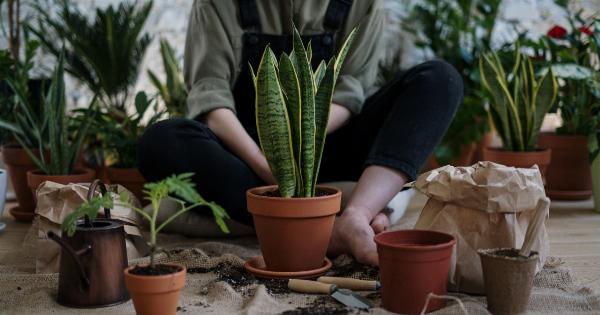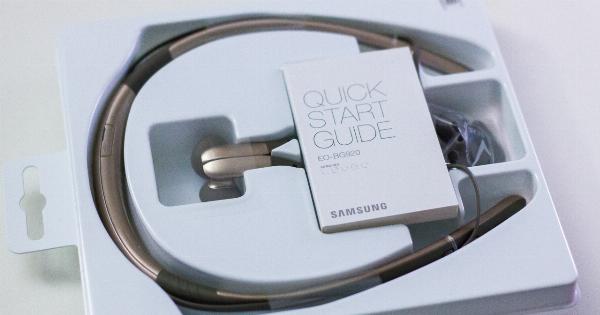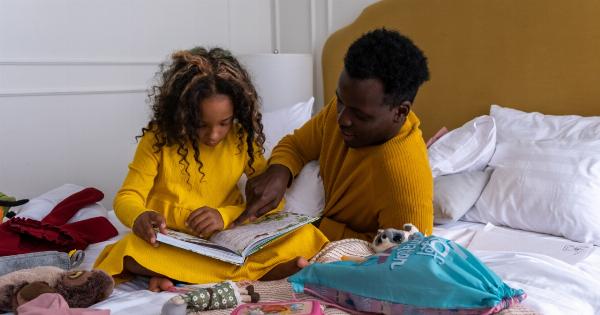Relationships are an essential part of human life. They bind people together, create a sense of community, and bring joy and meaning into our lives.
Whether it is a romantic relationship, a friendship, or a familial relationship, it is in our relationships that we find purpose and happiness. However, relationships can also be mysterious and complex. It can be challenging to understand the nuances of a relationship, especially when it is not going well.
In this article, we will unveil some of the mysteries of relationships and help you find the joy that comes with building strong, healthy connections with others.
What is the Joy of Relationships?
The joy of relationships is the feeling of happiness and fulfillment that comes from being connected to other people. In a positive relationship, you feel seen, heard, and valued.
You have someone to turn to in times of need, someone to share your joys and triumphs, and someone to support and encourage you through life’s ups and downs. When you have strong relationships, you feel safe, secure, and supported. You know that you are not alone in the world, and that there are people who care about you and want to see you succeed.
Why are Relationships Mysterious?
Relationships can be mysterious for a variety of reasons. One of the most significant reasons is that each person brings their unique set of experiences, beliefs, and values to the relationship.
Even when two people are very similar, they still have different perspectives on life and different ways of viewing the world. This can lead to misunderstandings, miscommunications, and hurt feelings, which can cause a relationship to suffer. Additionally, relationships are dynamic and always changing.
What worked in a relationship yesterday may not work today, and what works today may not work tomorrow. It takes effort to maintain a relationship, and it can be challenging to navigate the changes and challenges that arise over time.
What are the Benefits of Healthy Relationships?
Healthy relationships come with a range of benefits, including:.
- Increased happiness and life satisfaction
- Reduced stress and anxiety
- Better physical health
- Increased trust and intimacy
- More opportunities for personal growth and self-improvement
How to Build Strong, Healthy Relationships?
Building strong, healthy relationships takes effort and dedication. The following tips can help you build and maintain positive relationships:.
- Communicate openly and honestly – Share your thoughts, feelings, and needs with the other person. Listen actively and avoid interrupting or dismissing their ideas.
- Show empathy and understanding – Try to see the situation from the other person’s perspective. Show that you understand and care about their feelings and needs.
- Set boundaries – Every relationship needs boundaries to function well. Be clear about what you are and are not comfortable with, and communicate your boundaries clearly.
- Respect each other’s differences – Realize that everyone has their unique way of viewing the world. Respect and appreciate the other person’s differences, even if you don’t agree with them.
- Apologize when necessary – If you hurt the other person’s feelings, take responsibility for your actions, and apologize. Show that you care about the other person’s feelings and want to make things right.
- Practice forgiveness – Everyone makes mistakes. Practice forgiveness and let go of any grudges or resentments that could harm the relationship.
- Invest time and effort – Relationships take time and effort to build and maintain. Make sure to invest time and energy into the relationship to keep it strong and healthy over time.
What are the Challenges to Building Strong, Healthy Relationships?
Building strong, healthy relationships can be challenging for a variety of reasons. Some of the most significant challenges include:.
- Lack of communication – if one or both parties struggle to communicate openly and honestly, the relationship can suffer.
- Conflicting priorities – if one person’s priorities conflict with the other’s, it can be difficult to find common ground and build a strong relationship.
- Lack of trust – trust is the foundation of any healthy relationship. If there is a lack of trust, it can be hard to build a strong connection with the other person.
- Misunderstandings – misunderstandings can occur in any relationship, and if they are not addressed promptly, they can fester and grow into more significant problems.
- Vulnerability – building healthy relationships requires vulnerability. It can be challenging to open up to others and share your innermost thoughts and feelings.
The Importance of Self-Care in Relationships
Self-care is essential in any relationship. When you prioritize your own needs and well-being, you are better equipped to show up as the best version of yourself in your relationships. Self-care can take many forms, including:.
- Practicing mindfulness and meditation
- Eating a healthy diet and getting enough sleep
- Exercising regularly
- Engaging in hobbies and activities that bring you joy and fulfillment
- Setting healthy boundaries
The Role of Communication in Building Strong, Healthy Relationships
Communication is key to building strong, healthy relationships. When you communicate openly and honestly with the other person, you create a sense of trust and intimacy. Good communication involves more than just talking about feelings.
It also involves actively listening to the other person, paying attention to nonverbal cues, and asking clarifying questions when needed. When communication is done well, it can lead to deeper understanding, increased trust, and more meaningful connections with others.
The Bottom Line
Relationships are essential in life, and while they can be mysterious and complex, they can also bring great joy and fulfillment.
By investing time and effort into building strong, healthy relationships, you can experience all the benefits that come with meaningful connections with others. Remember to communicate openly and honestly, show empathy and understanding, set healthy boundaries, prioritize self-care, and practice forgiveness. With these tools, you can build relationships that last a lifetime.





























